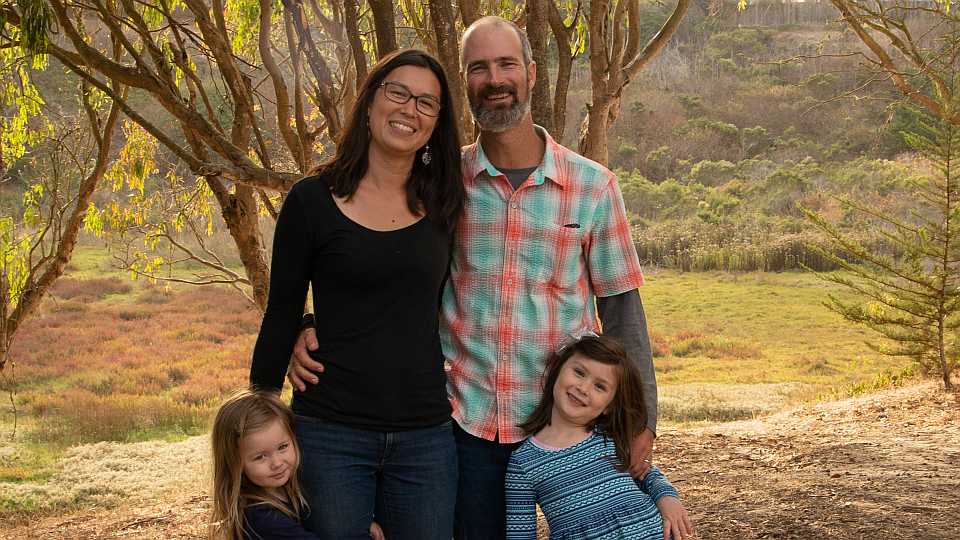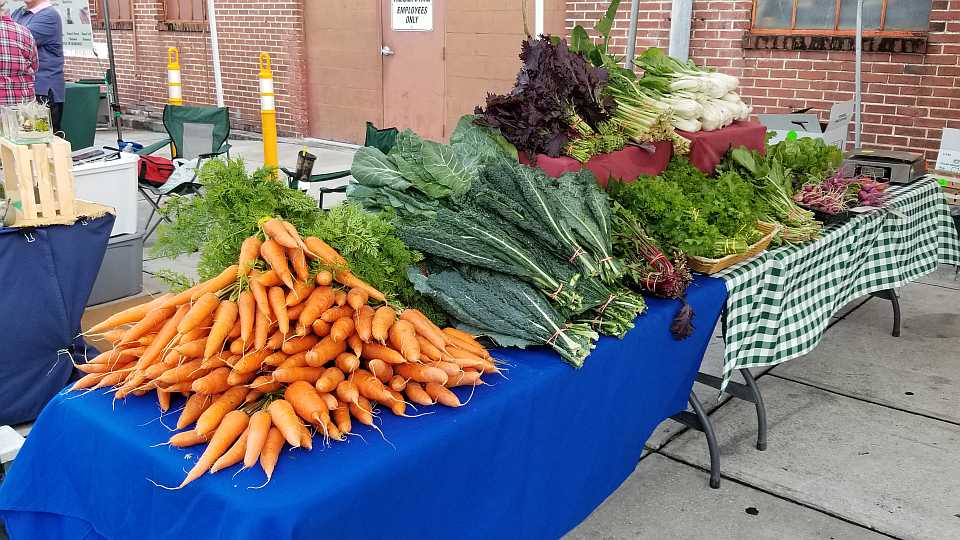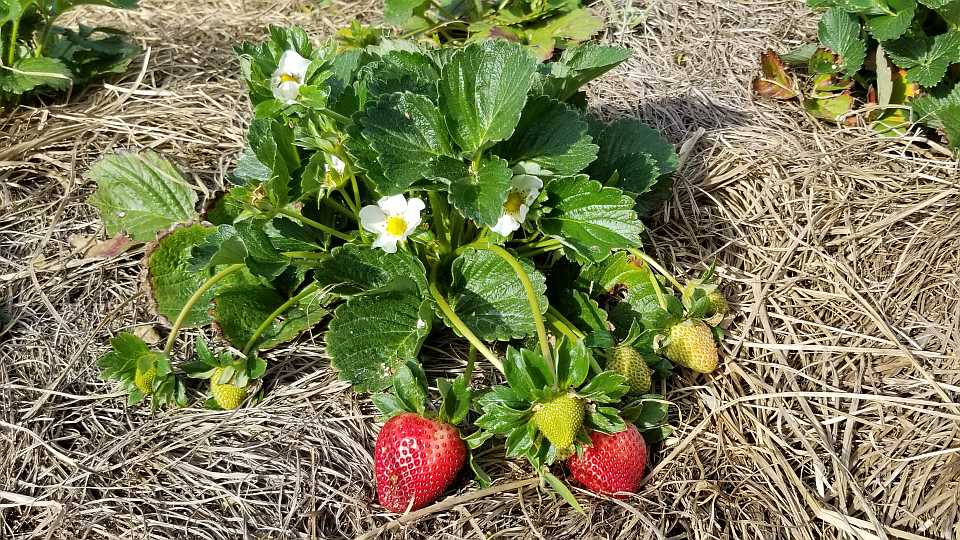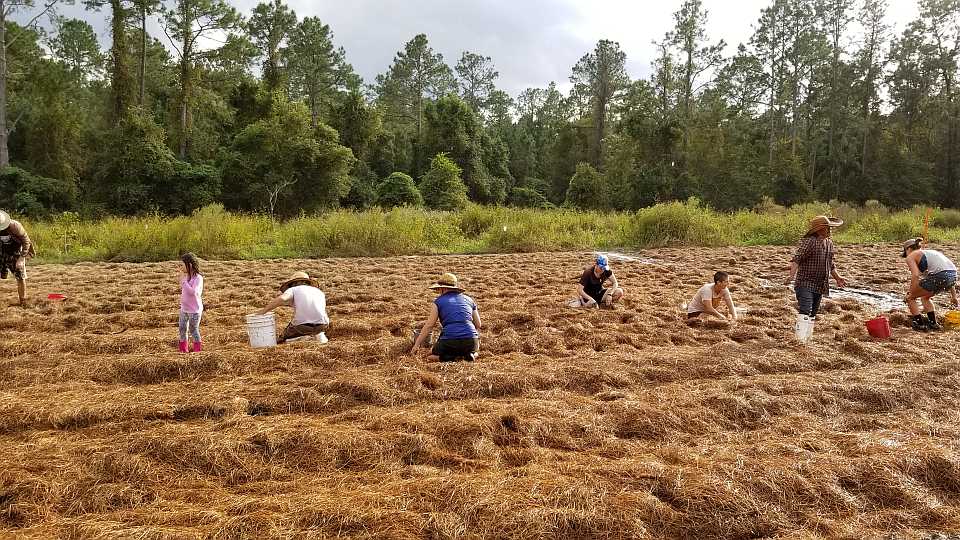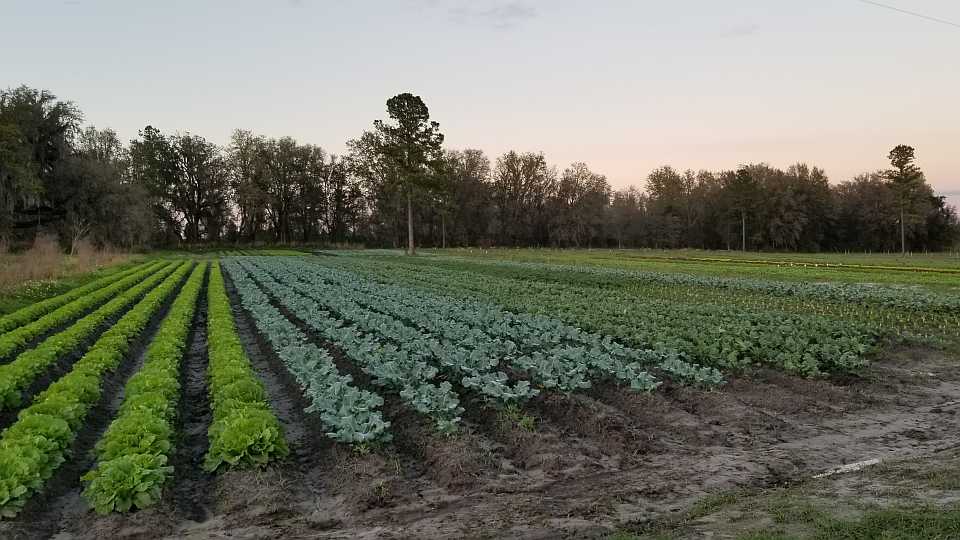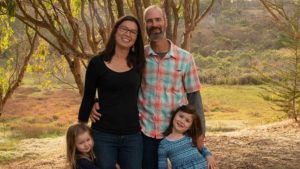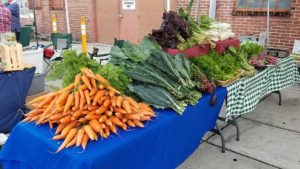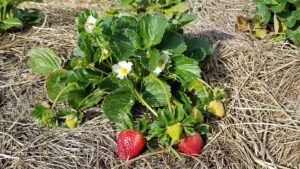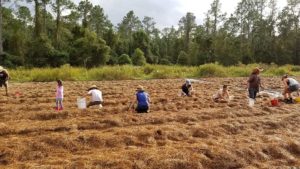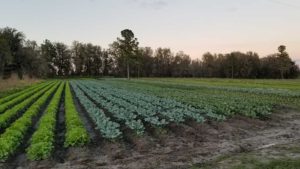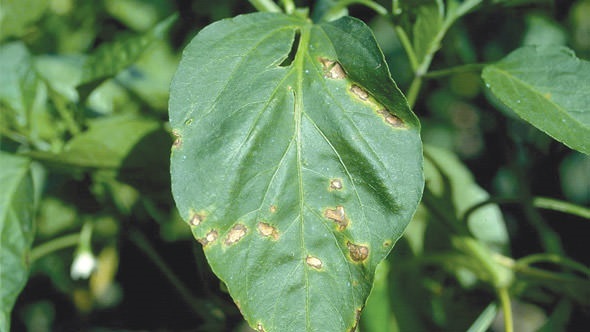Why Small Farm Success Starts With Building a Community
When Amy Van Scoik and her husband John Bitter started Frog Song Organics in fall 2011, they envisioned building a sustainable farming operation based on serving their local community and agriculture in Alachua County and Central Florida. That commitment, and a lot of hard work, has seen the farm grow over the years from 6 acres to a 60-acre operation.
The farm has been organized around the idea of a triple bottom line, which pays respect to human, ecological, and economic resources. Van Scoik says those three areas are critical to the longevity and sustainability of any farm business.
“I tell my customers that since we started farming, I have never been bored once,” she says. “We have been challenged many times, but never bored.”
With nearly 80 different crops in cultivation over the course of a year, it is easy to understand why there’s never a boring moment at Frog Song Organics. Those products are marketed to customers via a number of different avenues, including its website’s storefront, community supported agriculture (CSA) memberships, farmers’ markets, U-picks, and local restaurants.
Getting Established
Acquiring land is a critical first step for any beginning farmer. When Van Scoik and Bitter dipped their toes into the farming business, they did it as first-time home buyers. Along with the home came 6 acres where they planted their first crops.
“We were not initially looking for a home but realized we were going to need a place to live,” Van Scoik says. “And at the time, we were coming out of the mortgage crisis, so there were not many places lending money for raw land for what our needs were and personal financial situation afforded.”
The couple qualified for a first-time home buyers’ mortgage and were in business. After a few years, they leased 15 acres of land at an adjacent property to their farm. Eventually, those 15 acres were included in a purchase totaling 57 acres.
“I tell everyone I don’t care how small you start out. If you think you want to have a farm someday and want to get financing, you must keep production records,” Van Scoik says. “Once you have three years of records, even on a small scale, the USDA will consider you for its Beginning Farmer and Rancher Loan. That was how we were able to expand and purchase the land. We could only do that with the three years of production history, showing that we were expanding and knew how to grow and market crops.”
Engaging the Community
Van Scoik says one of her favorite parts of farming has been the opportunity to engage the community and their customers. The farm makes great use of social media (Facebook and Instagram) to keep customers aware of activities.
“Connecting with people has always been a major goal of what we do,” she says. “We host two farm tours per year in the spring and fall. We love having people come to the farm and visit the events we participate in. People are fascinated by farming and have all kinds of questions about what we do and what it takes to bring food to their tables.
“Facebook has been a great way for us to help build our brand. It allows us to stay present in our customers’ minds. We post a good amount of educational material, like how to prepare and cook items we grow, or their nutritional value. It is not always about a transaction or sell. It is more about transferring knowledge.”
Frog Song participates in four farmers’ markets each week — downtown Gainesville, Winter Garden, Winter Park, and St. Augustine Amphitheater. Van Scoik says this weekly interaction with customers also has built a loyal following.
Engaging the community extends beyond their customer base. The farm now networks with a number of other local organic or sustainable farms to provide customers a wider selection of produce and to help absorb their neighbors’ surplus inventory.
“We work with a grower in Gainesville who grows Brussels sprouts,” Van Scoik says. “We don’t grow Brussels sprouts, but our customers are asking for them. It makes sense for us to source from their farm when they are available and bring it to our customers. It is a win-win.”
Frog Song has similar arrangements with other farms. They are very transparent in labeling who grows the produce and that it was done in an environmentally sound way.
CSA Evolution
One of the foundational elements of the farm was offering customers the opportunity to join their CSA service. It remains an important part of Frog Song’s marketing mix but has evolved over time.
“In the beginning, our CSA was a much larger part of our revenue than it is today,” Van Scoik says. “The first few years it grew, but now has leveled out as other parts of our business have grown. The CSA model is a little harder sell now because there is much more noise in the marketplace coming from various other services and offerings.”
Frog Song now offers its CSA customers more flexibility with their Farmers’ Choice and Your Choice options. Subscribers pay the same fees going in but can opt to have the farm select items that are in abundance at a particular time in the season. Or the customer can apply that same value and select items from its website’s storefront.
“I explain to our customers: If you want to get the most for your money, then let us choose,” Van Scoik says. “But, if they want to support a local farm and never want to see an onion in their box, they don’t have to. People also hate food waste. If allowing our customers to customize their CSA box means they will stick with us and it cuts down on waste, it is a good solution.”
Chef’s Delight
Serving local restaurants has been another successful expansion of Frog Song’s business. Brandon McGlamery, the Executive Chef of Luma on Park and Prato in Winter Park, was among its first buyers.
“As our relationship grew, we started sending a truck down there once a week, then twice a week,” Van Scoik says. “Once we demonstrated we grew a quality product and were reliable and easy to do business with, Brandon started recommending us to other chefs, and it took off from there.”
The farm serves a core of about a dozen restaurants year-round, and that number grows to about two dozen during the spring peak season. Van Scoik says the ability to provide regular invoicing and good customer service is key to drawing restaurant buyers.
“The first new vehicle we ever bought was a transit van with a refrigeration unit,” she says. “We cool our produce on the farm and keep it cold on the truck until delivery. That makes a big difference in the quality of the produce we deliver, and it’s what chefs are looking for.”
Ecological Considerations
In addition to being certified organic, Frog Song places an emphasis on regenerative practices intended to improve soil health. Cover crops are planted on the farm to build soils and reduce runoff. They also participate in research trials with UF/IFAS to evaluate new varieties and various sustainable/organic production practices.
“One thing that we do differently than other farms is we don’t use plastic mulch,” Van Scoik says. “In our strawberries, for example, we build our beds and then mulch with hay. The hay helps build up our soil organic matter and helps keep soil temperatures cooler.
“We have found in North Florida, we can’t possibly beat Plant City growers to market, so we hang on to the end of the season and the mulch helps us do that. We have local Florida strawberries after the market has moved north and very few local berries are available. I am not sure how that would scale up, but for our direct-market consumers who care about flavor and freshness, it works. And, at the end of the season, we don’t have a big pile of plastic that has to go somewhere.”
A Growing Team
Part of Frog Song Organics’ triple bottom line takes into account the human side of its business and employees. In its earliest days, the farm relied on volunteers and an apprentice who would live and work on the property.
Several full-time staff have been added over the years as the farm grew and Van Scoik’s and Bitter’s family grew. Jade and Coral, the couple’s children, are now enjoying the benefits of growing up on the farm with their parents.
Frog Song’s owners continually strive to add to the various benefits that they offer employees including paid sick leave, life insurance, and a profit sharing program. During peak season, employee rolls can grow to about 25 staff members.
Like other farms, Frog Song has struggled to find adequate local labor to meet its needs during its peak season. They have turned to the H-2A visa program to help fill that void. “As the farm has grown, it has been difficult to fill our work crew with local people. So about four seasons ago, we began using H-2A,” Van Scoik says. “It is not easy or cheap, but it has brought some stability to our labor resources. And we’ve really enjoyed getting to know these amazing, hard-working people.”





